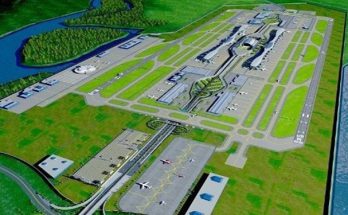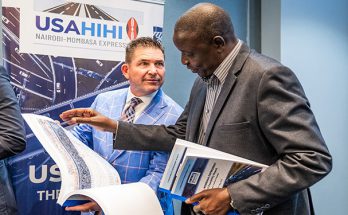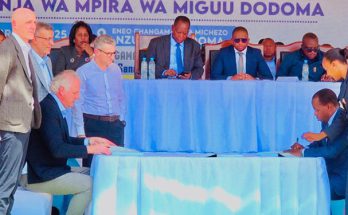 Japanese corporations like electronics titan Panasonic and steelmaker Toyo Kohan are leveraging their presence in Turkey to make inroads into Africa, supplying products to the continent from their low-cost manufacturing bases here and other Turkish locations.
Japanese corporations like electronics titan Panasonic and steelmaker Toyo Kohan are leveraging their presence in Turkey to make inroads into Africa, supplying products to the continent from their low-cost manufacturing bases here and other Turkish locations.
Toyo Kohan began commercially producing surface-treated steel sheet in April at a factory located in Osmaniye, a southern Turkish city close to the Mediterranean Sea. The $650 million facility, which is jointly owned by Turkish peer Tosyali Holding, will make 1.2 million tons of the product per year. The plant represents a huge gamble for Toyo Kohan, which takes in about 120 billion yen ($1.06 billion) in consolidated sales annually.
The mill will export 100,000 tons of cold-rolled steel sheet a year to Africa, according to Fuat Tosyali, chairman of the joint venture Tosyali Toyo Steel. He adds that the location of the plant allows the company to ship product by ocean vessel to Ethiopia and other East African locations in three-to-four days. Its steel sheet is thinner and lighter than rival products from China and elsewhere. The company is pitching the product for use in roofing and other applications.
Panasonic purchased a wiring-device maker headquartered in Istanbul in 2014. Now, it positions the unit as the main driver of its goal to become the world’s No. 1 in the wiring-device business, from which the Japanese electronics giant rose. Because of different outlet standards, the Turkish unit is used to export wiring devices to countries influenced by continental European colonial powers. An Indian acquisition exports devices compatible with specifications found in former British territories.
Panasonic now controls the No. 2 worldwide share in the industry at just under 10%, but by next year it plans to overtake France’s Legrand, which holds the crown at 10%-plus.
“We are able to meet challenges, such as reducing product development lead time, flexibly,” said Takaki Oguri, who heads both the Turkish and Indian units. “We can match local needs and manufacture at costs that are competitive.”
The European Union and Turkey forged a customs union agreement in 1995, paving the way for the country to grow into a key export gateway to Europe. International companies have also favored the nation as a base for developing Central Asian and Middle Eastern markets. Now Turkey is increasingly serving as a springboard for corporations to push into Africa, which has a large margin for growth.
Japanese enterprises are no exception. Instrument manufacturer Shimadzu is making headway into African markets via an arm in Istanbul. The company has built up a distributorship network in 16 countries on the southern continent, selling analytical devices and medical-imaging equipment. Meanwhile, car battery-maker GS Yuasa exports the mainstay products from a jointly owned factory in western Turkey.
Turkish President Recep Tayyip Erdogan has been making successive visits to Tanzania, Mozambique and other African nations for the purpose of diversifying trade relations. If Turkey’s general contractors are called to participate in infrastructure development projects, “Japanese corporations can be involved in terms of funds procurement and offering engineering technology,” said a branch manager at a large Japanese trading firm.
However, the African enterprises are not without their risks. Among other problems plaguing the region, many economies are highly exposed to commodity prices. Turkish exports to Africa rose sharply between 2010 and 2013 during the commodities rally, only to tumble soon after.



